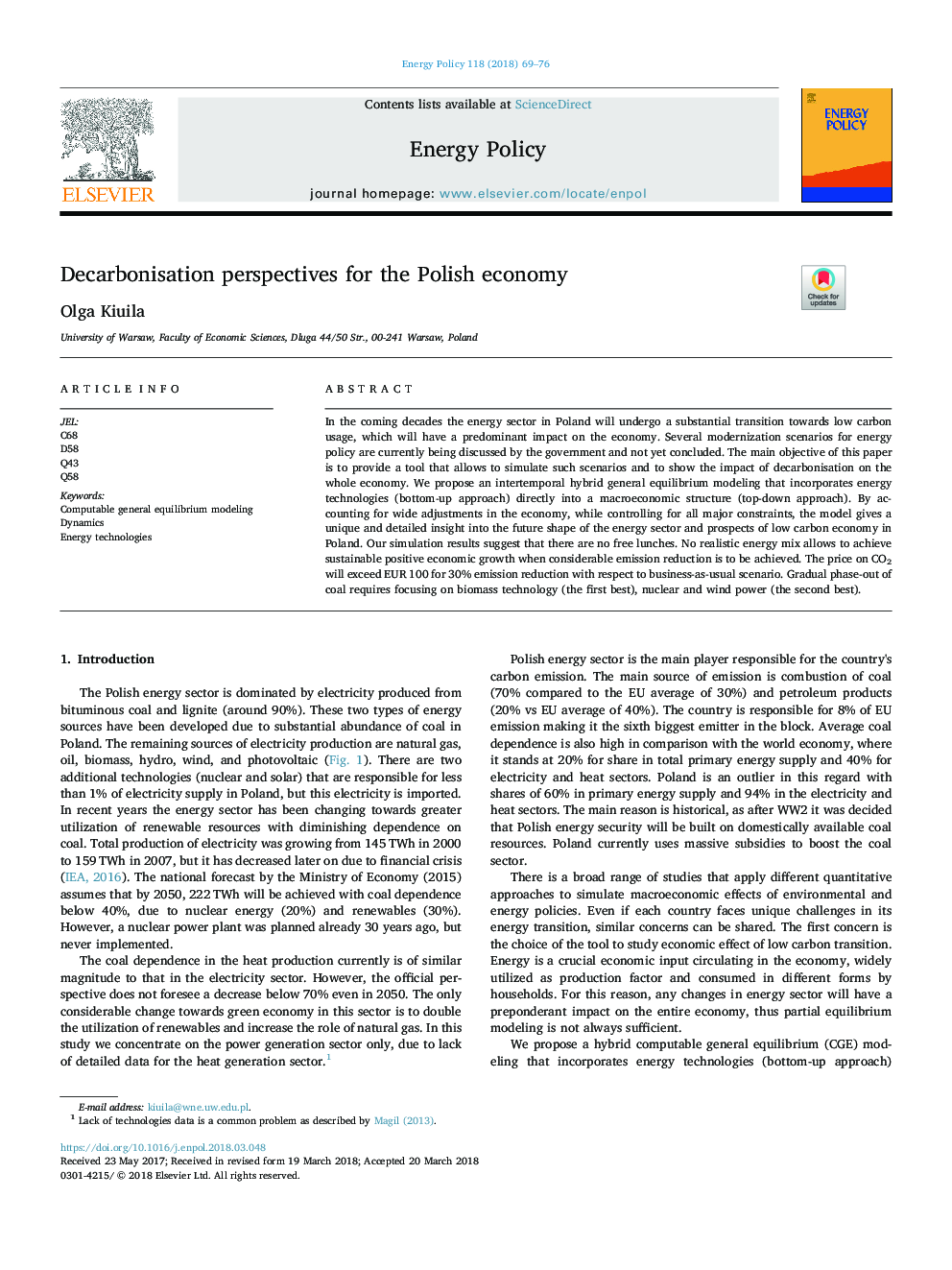| Article ID | Journal | Published Year | Pages | File Type |
|---|---|---|---|---|
| 7397567 | Energy Policy | 2018 | 8 Pages |
Abstract
In the coming decades the energy sector in Poland will undergo a substantial transition towards low carbon usage, which will have a predominant impact on the economy. Several modernization scenarios for energy policy are currently being discussed by the government and not yet concluded. The main objective of this paper is to provide a tool that allows to simulate such scenarios and to show the impact of decarbonisation on the whole economy. We propose an intertemporal hybrid general equilibrium modeling that incorporates energy technologies (bottom-up approach) directly into a macroeconomic structure (top-down approach). By accounting for wide adjustments in the economy, while controlling for all major constraints, the model gives a unique and detailed insight into the future shape of the energy sector and prospects of low carbon economy in Poland. Our simulation results suggest that there are no free lunches. No realistic energy mix allows to achieve sustainable positive economic growth when considerable emission reduction is to be achieved. The price on CO2 will exceed EUR 100 for 30% emission reduction with respect to business-as-usual scenario. Gradual phase-out of coal requires focusing on biomass technology (the first best), nuclear and wind power (the second best).
Related Topics
Physical Sciences and Engineering
Energy
Energy Engineering and Power Technology
Authors
Olga Kiuila,
